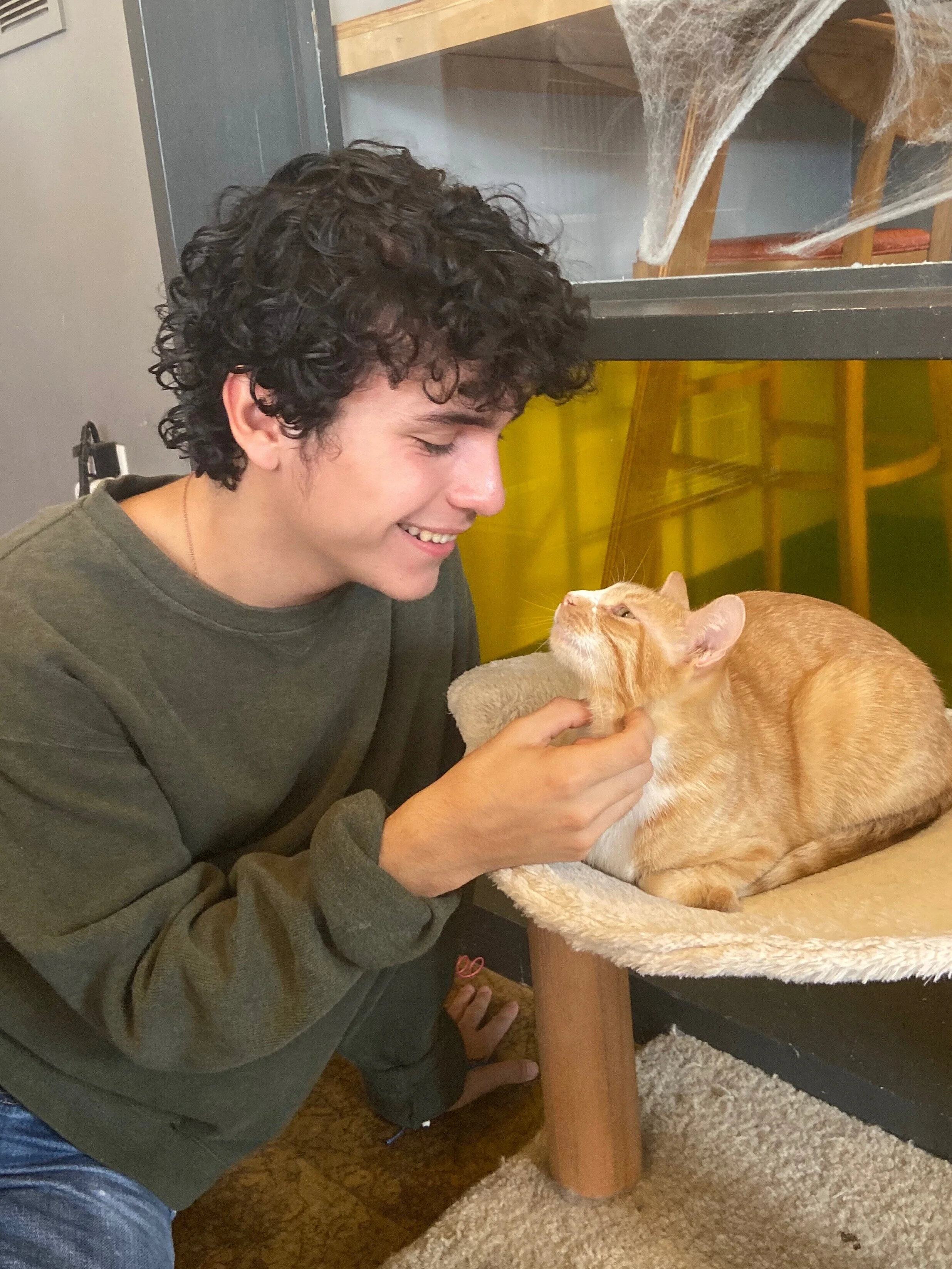HUMANS OF TYSON 2021
Raf Rodriguez
(he/him)
Tyson Undergraduate Fellow
How are you inspired by science?
I think I view science as an answer to a lot of society's problems, but it's not as one dimensional as it would seem. I think there needs to be a mixture between science and social change, and good communication and all of that together. I think science could be the catalyst for fixing a lot of the world's problems. For example, when we think about COVID, science has been super helpful in lowering deaths, getting the word out on the dangers of COVID, but science by itself isn't as powerful as when it's mixed with good communication and all of the other things. But I'm hopeful for science, and I'm hoping that more people start to believe in science and trust it.
Have you faced any challenges or setbacks this summer?
“Science by itself isn’t as powerful as when it’s mixed with good communication. I’m hopeful for science, and I’m hoping that more people start to believe in science and trust it.”
I think part of it has been just doing justice to the story of a person you're profiling. In the end, you're deciding what is on the website and what you're showing. And that’s a huge responsibility. Sometimes I think, “Am I doing this right? Am I painting this picture of the person how they would like?” But I think it's been really helpful to alleviate that by allowing the person who I'm profiling on to choose between two profiles, because then it's this co-creation where I'm not just telling this story for them, it’s a whole process. I think it's definitely helped going through this with our team and having this shared feeling of “We want to do the best that we can. Let's do it.”
Does hope appear in the work you do?
We're borrowing from Humans of St. Louis and Humans of New York and just offering snippets of someone's life, albeit more of their professional life and how their work is related to a whole bunch of other things. I think that gives me a lot of hope because we're offering the general public, both the Tyson community and the greater world at large, a snippet of who these scientists and these researchers are, aside from their work. And I'm hoping that that gives others hope for not thinking about scientists as these really big, bad people that are just out to get us, and instead really humanizing them and hopefully leading to a healthier relationship between scientists and the public.


